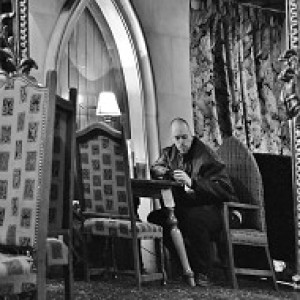Song Of My Returning
There are few things more enjoyable to a music-lover than one of your favourite artists releasing a new album, something exciting to get your teeth into when you've exhausted their back catalogue. When it's an artist who's always been an idol to you, that's even more special. When it's an idol who committed suicide in 1976, whose existing recordings were thought to have been collected and released in their entirety years ago, unearthing new stuff is nothing short of the holy grail.
If you're not already familiar with the life and work of Philip David Ochs, I posted a blip on the subject several years ago which will fill you in on the basics. To elaborate a little more here, Phil Ochs was, quite simply, the greatest topical protest singer of his generation. That's a concept which is remarkably difficult to put into proper historical perspective even for people whose iPods are chock-full of Tom Paxton and Joan Baez, and who named their first-born child Dylan You Fucking Judas. Because these days, our topical protest is rarely ever done through songs; our protest is done with the click of a mouse button, sending information, opinion and dissent across social media platforms as images, gifs, infographics, videos, listicles, blogs, or even simple status updates. But consider yourself back in a world where alternative views to those of the state and the media don't just plop effortlessly onto your wall or your timeline every day, and think carefully about how, in that society, the catchy two-minute folk song becomes the most reliable tool to spread a critical opinion of current affairs. These weren't songs intended for the ages; they were written to be shared, "forwarded", covered, performed, to reach as many ears as possible in the hope that they might change opinions. Understand this, and you'll understand the songs of Phil Ochs as the satirical political memes of their day.
This "new" collection, On My Way, is a demo session recorded in Florida in April 1963, when Ochs had established himself as a very popular singer on the New York folk scene, but before he'd secured his first recording contract. Some songs were later to end up on his first album (Lou Marsh, The Ballad Of William Worthy, The Power & The Glory, Talking Cuban Crisis); some he'd already recorded sketchy versions of for Broadside magazine, or later provided more polished versions of for other demo collections (The AMA Song, Paul Crump, The Ballad Of Alferd Packer) but some are unique to this collection, and worth the price alone. Aside from the glimpse of how some of his more established songs evolved between their inception and their final recordings, you can see how quickly Phil took stories from the newspapers and turned them into ballads - one event he references during this recording had only happened a fortnight earlier - and the more playful, self-deprecatory side of his art as he plays a disgraced Soviet apparatchik singing the blues in Once I Lived The Life Of A Commissar. There's even room for a fresh chapter in his playful (at this point) rivalry with Greenwich Village's most notorious troubadour, on the song Bobby Dylan Record. Even as Ochs sang, Dylan was busy putting the finishing touches on his landmark second album The Freewheelin' Bob Dylan, which would be released the following month, and their rivalry would become increasingly bitter and tilt into outright enmity until an awkward reconciliation shortly before Phil's suicide.
But all of those painful struggles were still to come. During this session, Phil Ochs was at his very best: his sound more honed than on earlier Broadside recordings, and yet more earnest and sincere than on later demos following his brushes with commercial success. On My Way may be the very last time we get to hear any Phil Ochs songs for the very first time, but as finishing touches go, it's captivating.
- 0
- 0
- Nikon D3100
- 1/50
- f/5.6
- 55mm
- 280

Comments
Sign in or get an account to comment.


